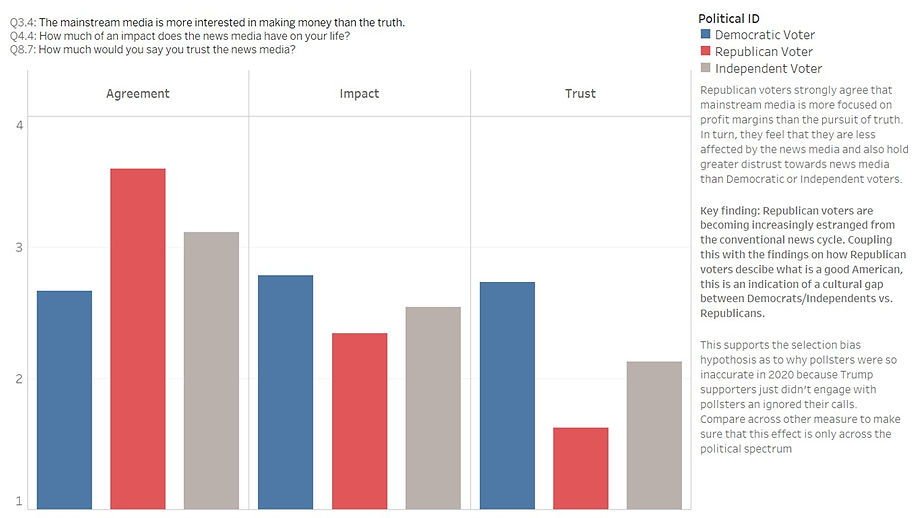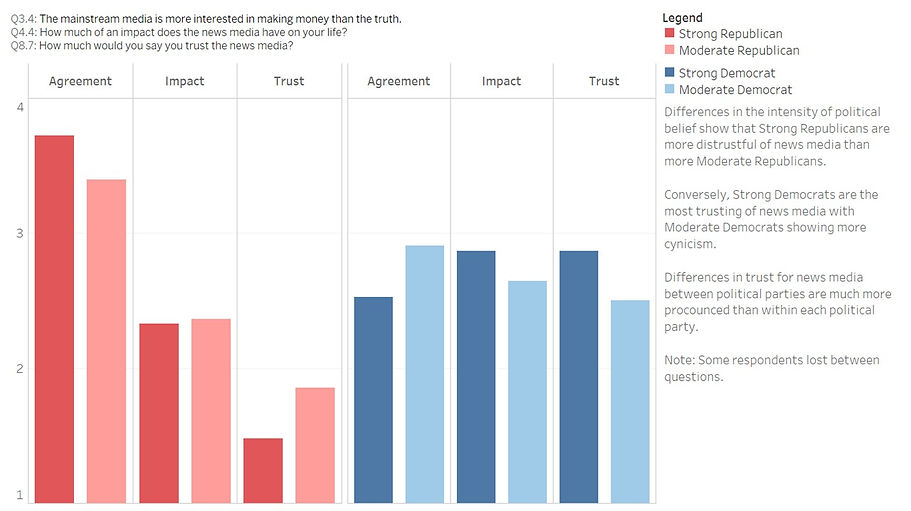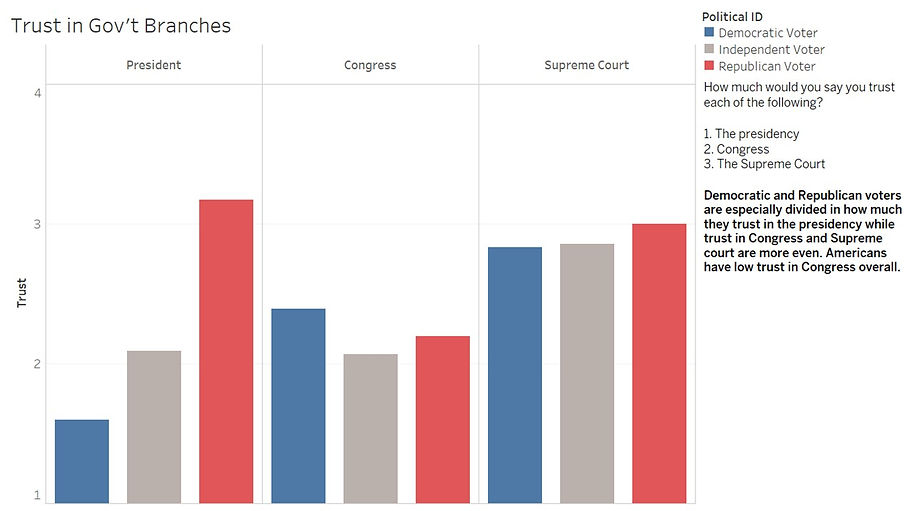
Voter Attitudes of 2020 Presidential Election
Aside from the confidence that 2020 will be one of the most memorable years in our lifetime, the 2020 US presidential election has also proved to be one of the most divisive political climates the American people have had to navigate in recent memory. The purpose of this post is to bring to light the many conflicting attitudes and beliefs held by voters during this increasingly tumultuous political era.
With allegations of fraud, cheating, and corruption, it is important to investigate how the populace is responding to such an overcrowded information climate.
The Survey
This survey instrument was designed by FiveThirtyEight and in collaboration with Ipsos. Its purpose was to explain why many Americans choose to not participate in their elections. Existing analyses have already been performed by both organizations and the links have been added below.
Defining American Identity
As seen in the chart below, it is the Republican voter that defines what a "good American" differently from Democratic or Independent voters.
This has serious implications for the future of cross party diplomacy between Democratic and Republican leaders. If a common definition fore American identity has been eroded to such a degree then compromises in policy and law will become difficult as there are more and more issues become uncompromisable. It is but another indicator of what many in the media describe to be the increasing tribalism regularly seen in the US domestic political arena.

Expected Social Norms
Republican and Democratic voters have very little agreement on the issue of systemic racism impacting society, or the severity in which it affects many citizens. Many Republicans see the current violence and vandalism during protests to be a greater problem than systemic racism within police institutions. Overall, most Republican voters do not see systemic racism as an urgent issue.
As for expectations of social norms, Democrats are much more in favor of greater social sensitivity when discussing issues regarding people of different backgrounds. They also do not recognize society as being too excessively soft or feminine.

Trust in News Media Institutions

Experts investigating the disparity between poll predictions and polling results of the 2020 Presidential election believe that selection bias is the primary suspect. They argue that the the increasing distrust of news media organizations by Republican voters means that they simply ignore any requests for them to perform a survey. This means that they only poll those that are willing to respond and not collect those that are strongly pro-Trump/Republican.

These results acknowledge that the differences are between parties and not within each party.
Trust in Government & Public Services


Preference in Leadership Styles

Voter Perception of Voting Suppression

One out of every five Democratic voters feel that their opposing Republican party is expending a lot of effort to keep them from voting, whereas only one out of ten Republican voters feel the same in reverse. Furthermore, even neutral Independent voters perceive greater suppression efforts from the Republican party than the Democratic. Should these attitudes continue to persist into the future, political discourse between parties will become very difficult if foul play is perceived to be happening.
Shifting Voting Behaviors

Recommended Future Direction
Survivorship Bias:
given the exceptionally bizarre response demographics of this survey and its probable impact on polling predictions for the 2020 presidential elections, greater understanding into Republican voting behaviors and beliefs is recommended.
A better understanding on how individuals that seriously distrust mainstream media and by extension survey pollsters,
How to account for survivor ship bias in polling responses? The first step would be to better understand this demographic so that experts may make more accurate inferences into how non-responders will vote once they reach the voting booth. Maybe recruit fox news or populist methodologies (non-mainstream media) that will not trigger defensiveness during an inquiry.